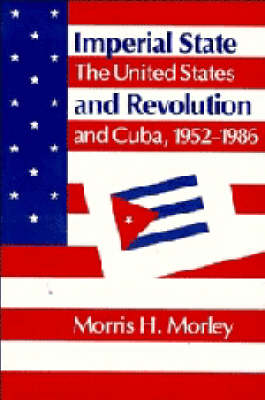The United States played a decisive role in Cuba's political and economic development during the first half of the twentieth century. The emergence in the 1950s of a broad-based opposition movement to the Batista dictatorship was viewed by American policy makers as a threat to American interests. The paramount concern of the Eisenhower administration was to deny political power to the Castro forces, a goal pursued by all means short of direct military intervention. Subsequently, American policy toward Cuba, as Morris Morley shows in this book, has focused on reasserting US influence over the island. Drawing on personal interviews, classified documents obtained through the Freedom of Information Act, and other primary sources, this study presents the most comprehensive analysis to date of the Kennedy and Johnson administrations' efforts to isolate Cuba politically within Latin America and economically throughout the capitalist world. During the Nixon, Ford, and Carter presidencies, as Morley shows, the global economic blockade unraveled, as did Cuba's political pariah status in Latin America. The book also traces the responses of the US Congress and the American business community to White House policy in the 1970s. In the epilogue, Morley discusses the Reagan administration's antagonistic policies toward Havana, which recalls the policies, rhetoric, and instrumentalities displayed by Washington during the early 1960s.
- ISBN13 9780521309882
- Publish Date 29 January 1988
- Publish Status Inactive
- Out of Print 1 March 2005
- Publish Country GB
- Imprint Cambridge University Press
- Format Hardcover
- Pages 580
- Language English
